IN SEARCH OF A STATUS
4/21/2020
Letter 1
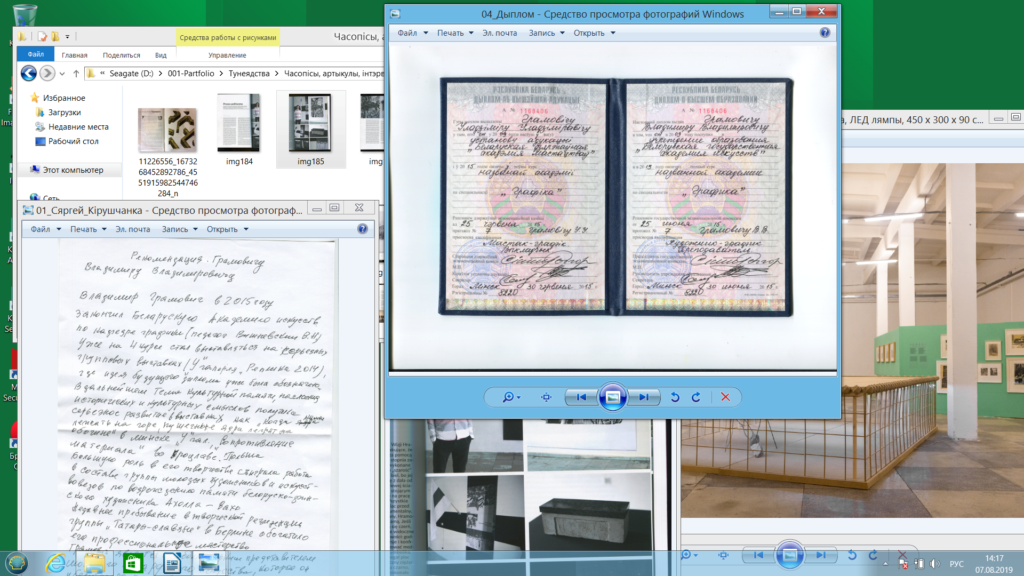
At the beginning of 2019 I received a short letter which started with the following lines:
“The Minsk Employment Service proposes assistance with the search for work at the department of public services No2.
For inclusion (exclusion, exemption from payment of services with reimbursement of expenses as a result of finding yourself in a difficult life situation) in the database of able-bodied citizens who are not employed in the economy, you must contact the permanent commission in charge of coordinating work to promote employment of the administration of … district of Minsk”.
I was aware that I fall under the law of ‘not employed in the economy.’
On the one hand, I have the opportunity to prove that I am a “cultural worker”: after graduating from the Academy of Arts I have been exhibiting periodically for the last four years. On the other hand, I think in great detail about what I should demonstrate and to whom: there is such a latent sensation of the futility of action itself and the inability to justify to my state the mere existence of what I am doing.
Step by step, I began to fill in a special portfolio for the Ministry of Culture. When I called the ministry to find out what documents I required, I was informed that the portfolio should include a maximum of ten works completed at a high professional level, which already sounded rather vague. Then I phoned the district administration and wrote a statement asking to grant me a respite for the period of three months in order to have time to collect all the documents.
The list of documents required for the session of the committee:
– Two reviews from artists, preferably from Belarusian Union of Artists. Articles about myself as an artist, catalogues, diplomas, mentions in mass media;
– Art university diploma (if there is one);
– Photos of ten artworks with a description. Original artworks should be brought to the session;
– Artist CV
Everything should be recorded on three DVD disks (it is not possible to send everything by email or bring on a USB stick). When I called the Ministry of Culture to specify what artworks can be demonstrated on photos, I was told that installation is not included in the list of works that can be shown, it is not art and cannot be considered by the committee. Apparently, they were confused by the document issued by the Ministry of Culture stating that curating is not a creative activity.
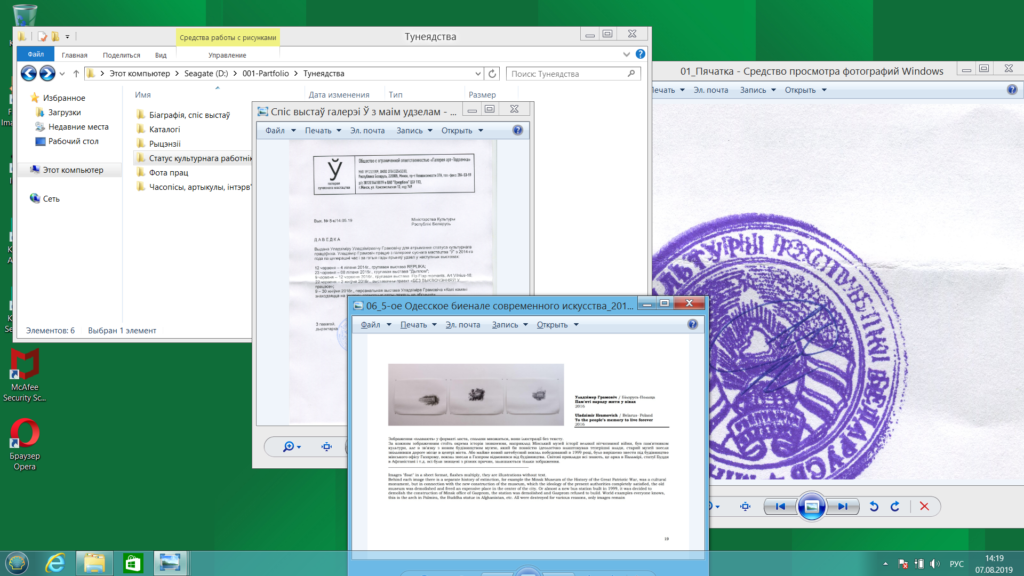
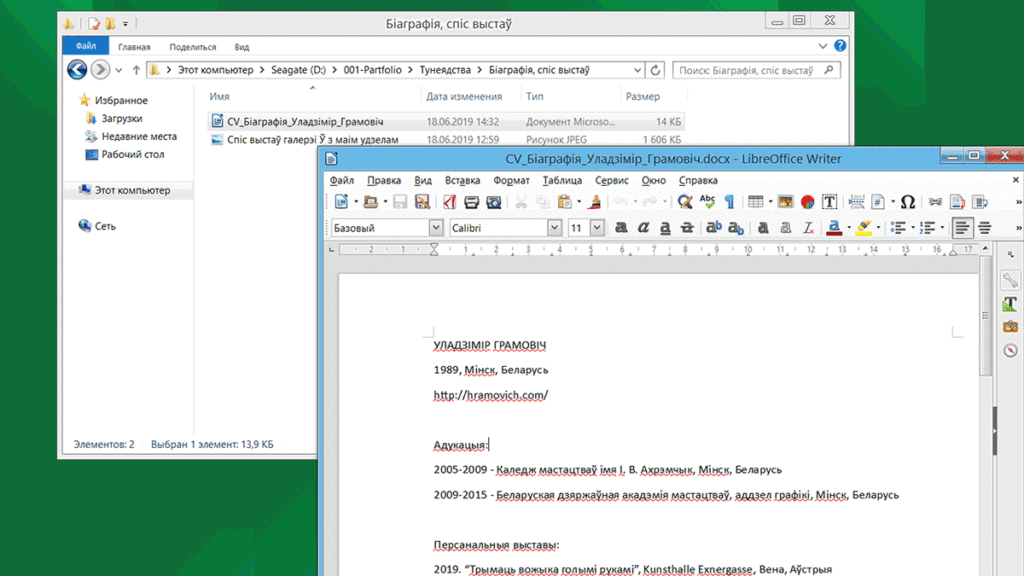
The process of collecting the documents was disrupted by work and an art residency, as well as by the lack of understanding why it was really needed: on paper it was clear, but the сollecting of documents and the rituality of the process were very frustrating.
This process itself reminds me of the difficulties in articulation of my art practice in Belarus. While the majority of artists in Belarus have problems with self-representation in the field of art, such administration requests – what are you doing exactly and how do you make your living – cause a brain freeze. The borderline state of contemporary art in Belarus turns artists into drifting subjects, avoiding (not always voluntarily) fixation and definition. This intention of the state to capture and pinpoint us, assign us an economical status (because it is initiated in order to figure out how we make our living), makes the procedure even more troubling.
The request to label myself, be assigned a name, be put in a list, and alongside with that to prove that I am useful or that I am actually an artist, although there is no existing governmental institution to support my work (for example a museum of contemporary art), causes deep controversies and raises numerous questions.
Since I am not the only one living in the apartment, I have to take into account the opinion of my family: according to the law, if I fail to provide the proof that I am involved in the economy, I will have to pay increased community charges.
I submitted documents on June 19. The law guarantees that the answer will be provided within a month, and during that time I will be invited to bring my artworks to a committee meeting.
The committee
On June 19, exactly one month later, I received a call. I was invited to the Ministry of Culture on June 21 at 12:00.
At 12:00 I was in the meeting room. I was the only one, although usually they gather several candidates for a cultural worker status. The committee consisted of 11 people. Only 8 came to my session while 9 votes are needed for a quorum. Luckily, one of the committee members who didn’t come to the session, got acquainted with my documents in absentia and rated them positively.
The secretary read out my brief biography, after which they gave the floor to me and asked to tell them about my art. Images of my ten artworks, which I recorded on a disk for my application, were projected on the screen. I think that my presentation lasted 8-10 minutes. I was asked only one question: where did I have solo shows. After my reply they said thank you and allowed me to leave.
The procedure seemed to be both official and nonsensical: it seemed that nobody really needed it. Despite the fact that the meeting went well, I still had a certain doubt: they seem to have ‘identified’ me, but at the same time there was a feeling that the committee itself did not fully understand the necessity of the entire procedure but everyone tried to function properly. Or rather that I was not the one whom the state was looking for to assign a role of a parasite.
Letter 2
On July 29 I found in my mailbox a letter stating that I am granted the status of a cultural worker for a period of five years.
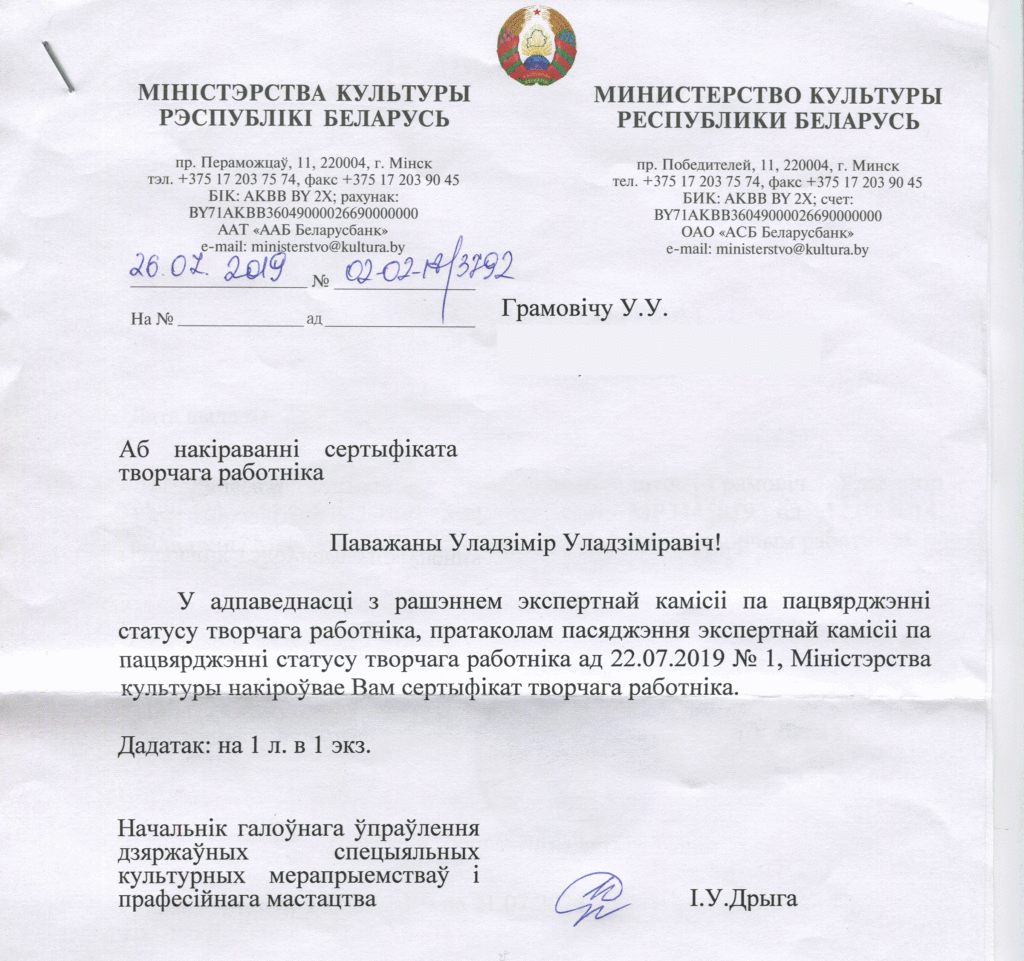
“Ministry of Culture of the Republic of Belarus
On sending a certificate of a creative worker
Dear Uladzimir Uladzimiravich!
In accordance with the decision of the expert commission on confirming the status of a creative worker, the protocol of the meeting of the expert commission on confirming the status of a creative worker dated July 22, 2019 No. 1, the Ministry of Culture sends you a certificate of a creative worker.
Supplement: on 1 sheet in 1 copy
The head of the main department of state specialized and cultural events and professional art I.V.Driga”
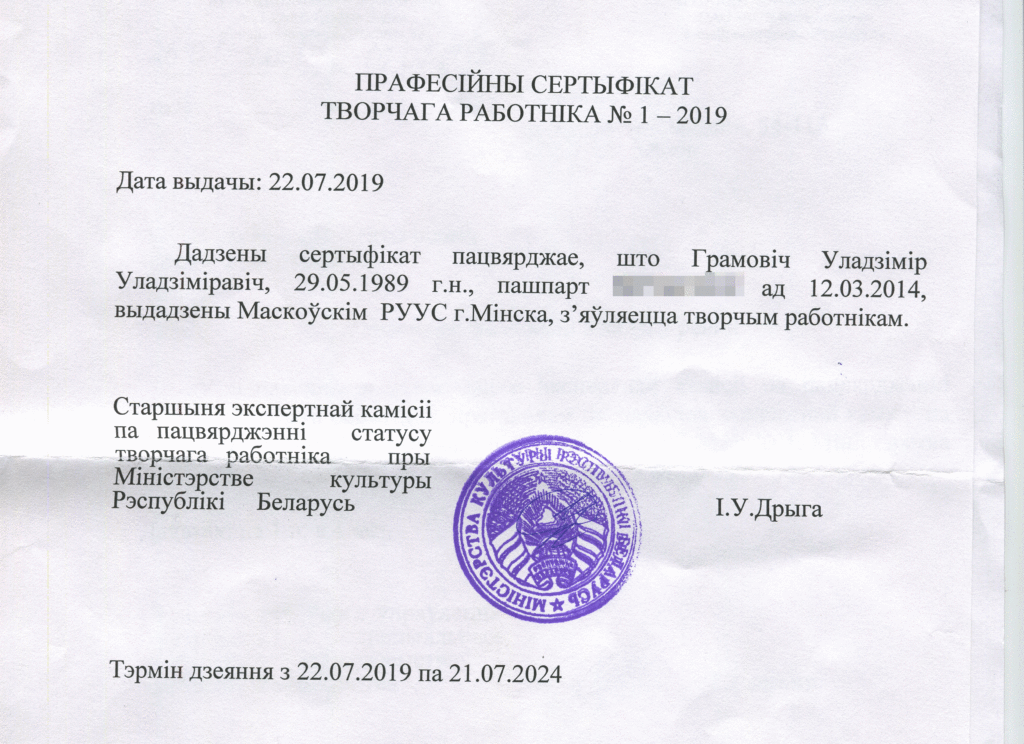
“Professional certificate of a creative worker No. 1-2019
Date of issue: 07/22/2019
This certificate confirms that Uladzimir Uladzimiravich Hramovich, born on 05/29/1989, passport […] dated 03/12/2014, is a creative worker.
The head of the main department of state special and cultural events and professional art I.V.Driga
The term is valid from 07/22/2019 to 07/21/2024″
***
There are two optics, or ways of seeing this procedure, which I often used during that time. The first one is a blind following of the ritual and state protocols. By using this optics one can think less and perceive everything as an inevitable fact of life: exactly how the state would like us to think about it. Another optics is a constantly drifting gaze; a state of being when you don’t know where to look and why is it even necessary. Such neuroticism doesn’t boost self-confidence or provide tranquility but illustrates well the state in which the government apparatus puts you and, even more, wants to fit this process into the explanatory framework. Instead of the description which assigns a status of a cultural worker, it rather becomes a caption to the situation in which an artist or a person is put in this country.
Somehow it resembles a caption one can find at art exhibitions, which is there to direct a viewer or explain an artwork. Often these are meaningless words and phrases which lead nowhere and signify nothing. Therefore, I find that the right thing to do in this situation is to use my own gaze, appropriate this setting and self-mobilize.
Parasite tax took to the streets people who have not been previously seen by the state and by each other. Guest workers, who work outside of the country, artists, unemployed or self-employed stand shoulder to shoulder, appear in front of each other, become alive for each other.
For Arendt, according to Judith Bulter, political action becomes possible with the existence of a body: “I appear to others, and the others appear to me, which means that some space between us allows each to appear”. We don’t just see each other and don’t just talk to hear each other. Who we are bodily, is a way of being for the other. When we appear this way “we are made available, bodily, for another whose perspective we can neither fully anticipate nor control”.1
Thus, a kind of de-virtualization took place between me and other citizens who fell under the law and it is worth continuing the process of appearing in front of each other, and in front of myself. The description may become a starting point, and that is what I attempted here: articulating and giving voice to situations and issues across this territory is now one of the most important tasks for me. What has no voice must acquire it; what was not named should be named – and not delegated to a state which historically has not represented us for a long time.
Upon receiving the status of a cultural worker, in general, nothing has changed. There is only peace of mind that the maintenance bills will not be increased in the next five years – for the period the status is given. However, it’s worth noting that such documents and laws are an occasion to review how we exist in society and within the state and remember that everything can be reviewed, reassembled or even canceled, since the law does not perform any function but only discredits cultural workers, as well as many others.
-
Butler, Judith, 2018. Notes toward a performative theory of assembly (pp. 76-77). Cambridge, Massachusetts; London, England: Harvard University Press. ↩